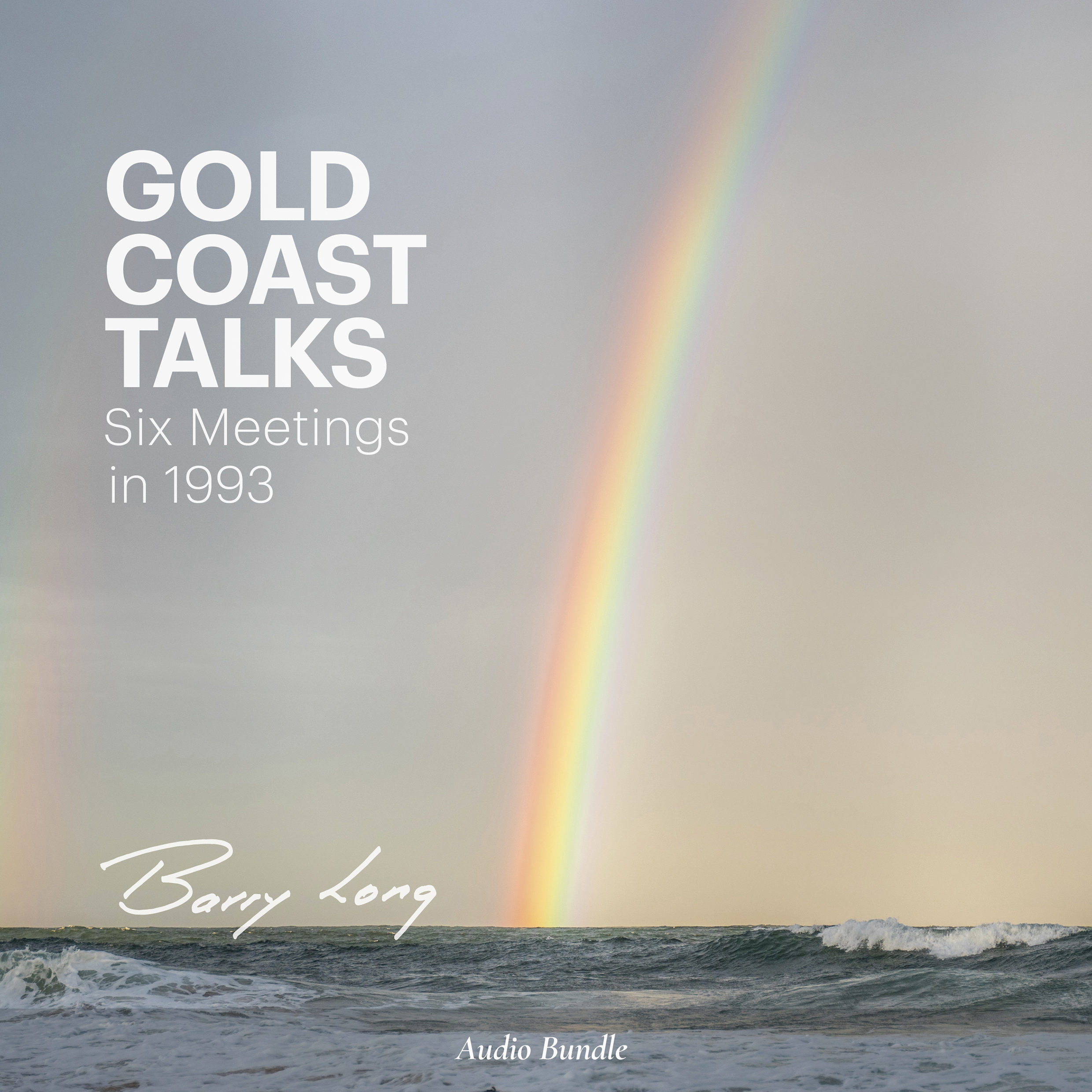Emotion Is Past
From the Gold Coast Talk 6 March 1993
The basis of my teaching is that all emotion is past. I was the first to introduce this to the public.
You'll always be able to tell when you are living in the past. If I (in the body hearing these words) am ever emotional, I am in the past. Whenever I am feeling emotional, which means disturbed, I am attached to or relating to the past.
I am never emotional in the present. It is obvious that I can only drink a glass of water in the present. My thirst can only be quenched in the present. It will never be quenched by thinking about a glass of water. In fact that will exacerbate the thirst, the absence of water, the pain.
If I am joyous, I can only be joyous in any moment. I can't be joyous in the past. For joy is always now. If you think about when you were joyous, you'll get emotional. If you think how beautiful it was to be with your partner four days ago, that beauty, which at the time was in the present, is now in the past. And by the law, it will come back and bite you. The thought about how good it was will activate the past. You will feel bereft of what you had; the past will rise up as an emotion of loss or absence and you will suffer.
Beauty is now. It is not emotion. It's in the present. It's like drinking a glass of water when you're thirsty and you say, 'That's good. Ah, lovely!' There's no past in that. But if you were to think about it, you would put the delight of it in the past; and that delight would become emotional.
Beauty, joy, wonder, privilege, gratitude, sweetness, love, tenderness, rightness, truth, are all in the present. There is no emotion attached to them. Or if there is, then whatever the facet of truth you have put it in the past.
If all emotion is the past, then it follows that all thought must be of the past, because all thought comes from trying to find the cause of the emotion. It will look at 99.9% of all the reasons - thinking, thinking, thinking: What's the answer? Where do I come from? What is the solution to the universe? Always looking - because thought can never eliminate itself. Thought will never, ever, lead you to the truth.
You can say to me, as many people do, 'Isn't it good to reflect on what I have done and learn the lessons?' And I say that's not good, even though in your experience it works. It is not good because things have moved on: I have brought a new energy, a new teaching, to this earth. It's only a selfish, emotional habit that you've got into - needing to go over what you have done to learn where you went wrong. It is not the truth.
Implicit in my mature experience of my body and my being is the knowledge of what I have done. There is no need to reflect on anything that I have done. I must give up this thinking thing, this reflective thing, that wants to find out why I was emotional.
There is no question in the past. The question is: Am I emotional now? That's the only question. If you try to look at why you were emotional yesterday, or what the source of your emotion is now in terms of going right back into your past, you'll get lost. Then you will have to go to the psychologists or the therapists to help you out. When I am responsible, I do it.
So the question is: Am I emotional now? And then: What am I emotional about now? That will reveal the emotion in my body - the emotional symbol, whether it be my mother, my father, my job, my accommodation, my striving to find God. Whatever it is, the question will reveal the emotion living in my body. For instance, if I am disturbed about my mother, or I have not got it right with her, my emotion about her is a little blob of living past in my body now.
That's what you have to face. If you are disturbed or emotional now, what are you disturbed about? Locating that will lead you to a little blob of living past, saying 'I am unhappy'. If you keep looking at that living past, it will reveal itself: 'I am unhappy about my mother'. Then you have to be very honest and you have to see what's wrong with that relationship. What am I doing? Where am I not giving? Where am I expecting? Where am I taking? That takes great honesty because my self, my mind, won't be honest. It will avoid identifying the cause. It will try to find many reasons but won't find the source of its own distraction.
